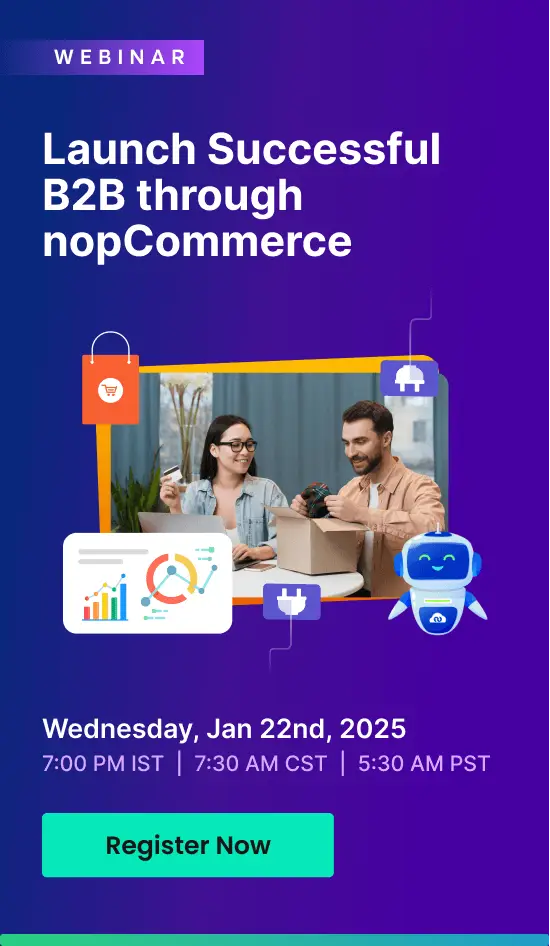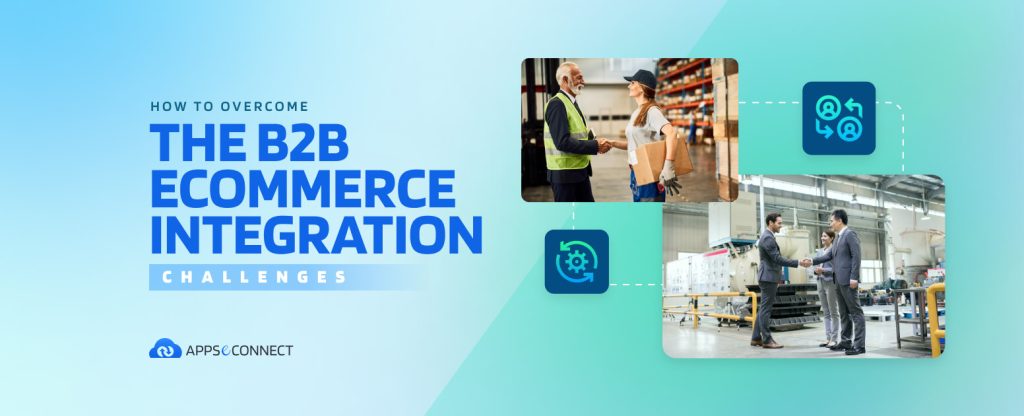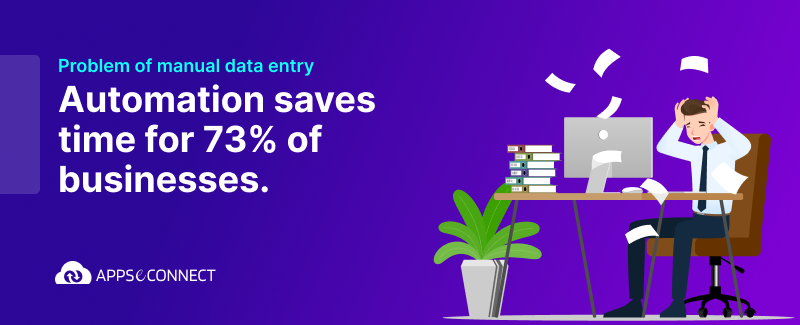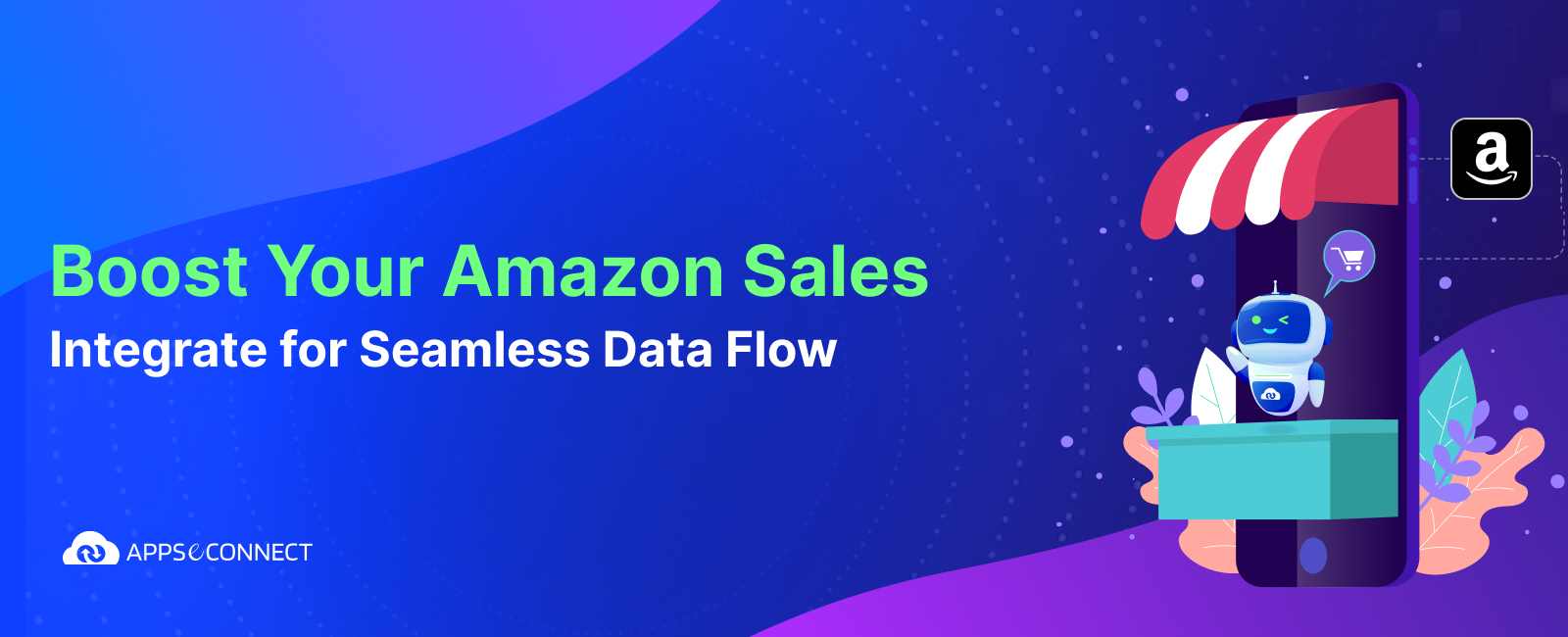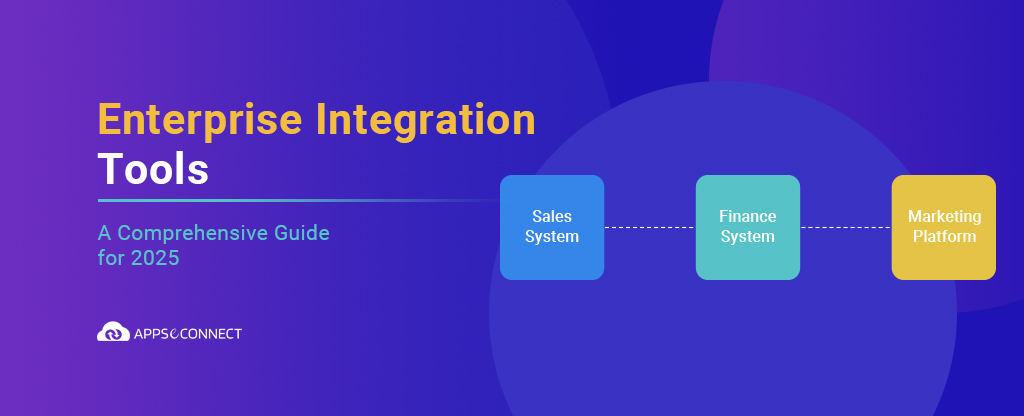With irreversible changes brought into our world by the pandemic, every sector of the industry has undergone an evolution to grow and thrive in the post-COVID-19 world. The B2B market has also seen similar significant changes. Gone are the days of in-person sales, and in their place, we now have the rise of the B2B eCommerce platforms. B2B eCommerce platforms provide the accessibility and comfort of seamlessly making purchases online from digital stores. However, with the increasing volume of online B2B purchases, businesses require more flexibility and scalability from the platform. With the need for expanded functionalities from B2B eCommerce websites, the need for its integration with other core technology systems of an organization is higher than ever. However, the specialized resources and technical prowess needed for it means most companies fail to implement it successfully. The benefits of B2B eCommerce integration can provide several advantages to a company, but the challenges of developing an integration from scratch are a huge roadblock.
What is B2B eCommerce?
Before we delve into the challenges of B2B eCommerce integration and how to overcome them, we need to first understand what B2B eCommerce is. In simple terms, B2B eCommerce is the process of marketing and selling products through online transactions between businesses. Traditionally B2B sales took place through face-to-face sales, but through an eCommerce platform, order processing is digital, which is more convenient for customers and improves buying efficiency and effectiveness for wholesalers, manufacturers, and distributors. With both B2B buyers and sellers preferring the new digital way of doing business, B2B eCommerce is here to stay and will continue to be one of the most booming sectors in the years to come.
If your business is running multiple systems and you want to achieve effortless B2B eCommerce integration with them under a single roof, employ the power of APPSeCONNECT’s robust integration capabilities to accelerate your business growth.

The Challenges in B2B eCommerce Integration
The benefits of operational flexibility, reduced time to market, and sustainable business scalability make full-stack integration of an organization’s software ecosystem a very in-demand functionality across the industry. With Enterprise Resource Planning (ERP) and Customer Relationship Management (CRM) applications storing business-critical data such as product details, item prices, account information, order data, and many more, B2B eCommerce integration with those systems is not a choice, but a necessity. However, most small and medium enterprises do not have the disposable resources for the in-house development of those integrations. Due to this, they face the following challenges to B2B eCommerce integration.
Consolidating Multiple Data Formats
ECommerce platforms and other business applications use different data formats to log information in their databases. In most cases, these data formats are incompatible with each other. Creating an integration of the B2B eCommerce application with the other software systems requires the different data structures to be converted into a data format compatible with all the integrated applications. Developing such a system is time-consuming and requires expertise for successful implementation.
Complex to Code
Developing integrations from the ground up is no easy task. The coding required for integration development is a highly specialized skill that not every team member will have. It requires a dedicated team of experts and a significant amount of time to create an integration such as that of a B2B eCommerce application with other line-of-business applications. The time, resources, and a team of skilled developers are not something every business can have readily available. The limitations due to the complexity of coding are one of the biggest hurdles to integration.
Maintenance of Integrations
The full-stack integration of an enterprise’s entire software infrastructure is not a deploy-and-forget solution. Manually creating an integration also requires manually managing and maintaining them as well. Every software application needs to be updated from time to time. During the process of upgrading, the version of the dependency library of these applications also changes. Mismatches between these library versions can cause errors in the integration. Thus, a full-time dedicated team is needed to maintain and manage all necessary protocols and libraries of the integrated application to ensure system stability. Establishing such a dedicated team can stretch out the limited resources of smaller businesses.
Developing Customized Sync Rules
B2B customers have higher expectations when it comes to their purchasing experience. They require more features and flexibility when making a purchase. With every customer bringing in unique requirements, custom data for order quotes, product volume, and invoices must be managed by the B2B eCommerce platform. Thus, during the development of the integrations, resources need to be allocated to define custom rules to synchronize the information across the applications.
Inconsistent Databases
With pre-existing data silos, there is a high chance of information inconsistency across the different databases. Integration of these databases will lead to conflicting details between the systems, defeating the entire purpose of creating an end-to-end integrated application ecosystem. Thus, organizations need to devote time to cleaning up their databases before migrating to an integrated architecture.
The Benefits of B2B eCommerce Integration
The challenges of implementing an integrated B2B eCommerce platform can steer companies away from it. However, persevering and overcoming these challenges can deliver an ROI (Return on Investment) that not only justifies the cost of implementation but also provides a perpetual cycle of sustainable and scalable business growth. The competitive advantages that B2B eCommerce integrations include:
- CRM integration with a B2B eCommerce website provides a complete overview of all visitor actions on the website and their background data, like the location from where the person is visiting the website. These details can help sales teams to better direct and cultivate leads and offer a faster onboarding experience.
- B2B sales usually involve complex pricing structures. Companies may need to generate item prices dynamically based on changing inventory data or offer discounts according to specific customers or order volumes. Moreover, as a business grows, data on product catalogs, item descriptions, and pricing factors also become more complex. Through the seamless integration with an ERP system, the B2B eCommerce application can rely on a centralized source for contracts, pricing, and invoicing details.
- The integration of the B2B eCommerce platform also helps to maintain accurate information on inventory levels across applications. The transparency of product availability on the eCommerce website allows customers to stay updated on stock levels during order placement. The accurate inventory data provides achievable delivery expectations, thus reducing customer frustrations.
- Through the integration, B2B companies can deliver an omnichannel experience to their customers. An omnichannel experience means a customer gets a unified experience across different purchase channels, such as physical stores, websites, or social media platforms. As any customer-generated data on the eCommerce platform gets instantaneously synchronized with all other databases, providing a seamless purchasing experience across multiple points of sale becomes effortless.
- The major challenge resolved through integration is the elimination of data silos. With the ready accessibility of the data in the eCommerce platform, the different departments can improve their productivity. The data can be used by the sales teams to better predict customer behavior, while support teams can use it to promptly resolve discrepancies.
- Integration also provides the benefit of effortless scalability to enterprises. In a system where every application is connected to each other, a growing business gains a digital infrastructure that seamlessly grows along with it. Moreover, organizations can also react and adapt faster to newer trends as any reactionary changes made in one platform also get synchronously reflected across the entire network.
How an Integration-Supported B2B eCommerce Platform Can Help?
Every modern business must maintain a vast repository of data for its customers, inventory, invoices, and much more. A B2B eCommerce platform needs integration to access this information from the databases to identify customer buying intent, orders, and payments. While developing the needed integration can be a big challenge, having a B2B eCommerce platform that comes with native support for integrations can significantly streamline the process.
An integration-supported B2B eCommerce application allows rapid deployment of integrations for the platform. It ensures that a business is future-ready by opening the opportunity to effortlessly connect any new software into the ecosystem without the need for any additional resources. Moreover, an integration supported B2B platform can come with embedded integration options for commonly used applications like ERP or CRM systems, which eliminates the need for developing integrations entirely.
How APPSeCONNECT Helps You Overcome the Challenges of B2B eCommerce Integration
With the power of APPSeCONNECT, your business can effortlessly resolve the biggest challenge to integration, the need for coders to develop them. APPSeCONNECT, as a low code iPaaS solution, allows users of any skill level to create all necessary integrations. ProcessFlow, APPSeCONNECT’s proprietary visual integration designer allows you to graphically design, manage and deploy any integration you may need.
APPSeCONNECT also comes out of the box with pre-designed integration templates for all industry-leading business applications, like Salesforce, SAP ERP, WooCommerce, Amazon and many more. The time-tested integration templates are optimized to industry best practices and provide plug and use capabilities to connect your B2B eCommerce platform with other line-of-business applications. With the ability to get started right out of the box, APPSeCONNECT allows you to cut down time to market significantly.
If your B2B eCommerce platform needs any additional custom integrations, APPSeCONNECT has you covered too. With adapters for standard protocols like FTP/Secure FTP, SOAP, REST, SMTP, any application that uses these protocols can directly use APPSeCONNECT’s generic adapters to create seamless instantaneous bidirectional data flow across the systems. The provided Software Development Kit (SDK) comes packed with a complete API help library to help you easily develop these adapters and plugins.
APPSeCONNECT also provides you with automated data tracking and error handling by continuously monitoring every data that passes through the platform and filtering capabilities to display only the errors faced during the data sync. With the platform highlighting the errors, you can readily address the issues and resync them to guarantee consistency across all databases.
The technical challenges for designing integrations from the ground up are a massive blocker to enterprises across the industry. APPSeCONNECT understands these difficulties, and with its expertise and experience has developed curated features which resolves these challenges and provides additional functionalities to accelerate your company’s digital transformation journey.
In Conclusion
The B2B digital commerce market is now wider than ever before. With how lucrative the business model is, every traditional B2B vendor is looking into taking their brick-and-mortar store online. With 65% of B2B businesses across the industry going online, companies need to offer a little extra to their customers to stay ahead of the competition. Through an integrated B2B eCommerce store, organizations gain the necessary insights to provide a premium customer journey and deliver faster to the market. But simply adopting a B2B eCommerce store will not accomplish the desired goals. Hastily implementing the application without any proper integration will lead to adverse effects in the long run due to stretched-out resources and erroneous data.
APPSeCONNECT is an intelligent next-gen iPaaS platform that provides robust low-code integration development capabilities to accelerate the digital transformation journey for businesses. Reduce your time to market and stay ahead of your competition with the power of APPSeCONNECT!
If your business is running multiple systems and you want to achieve effortless B2B eCommerce integration with them under a single roof, employ the power of APPSeCONNECT’s robust integration capabilities to accelerate your business growth.


